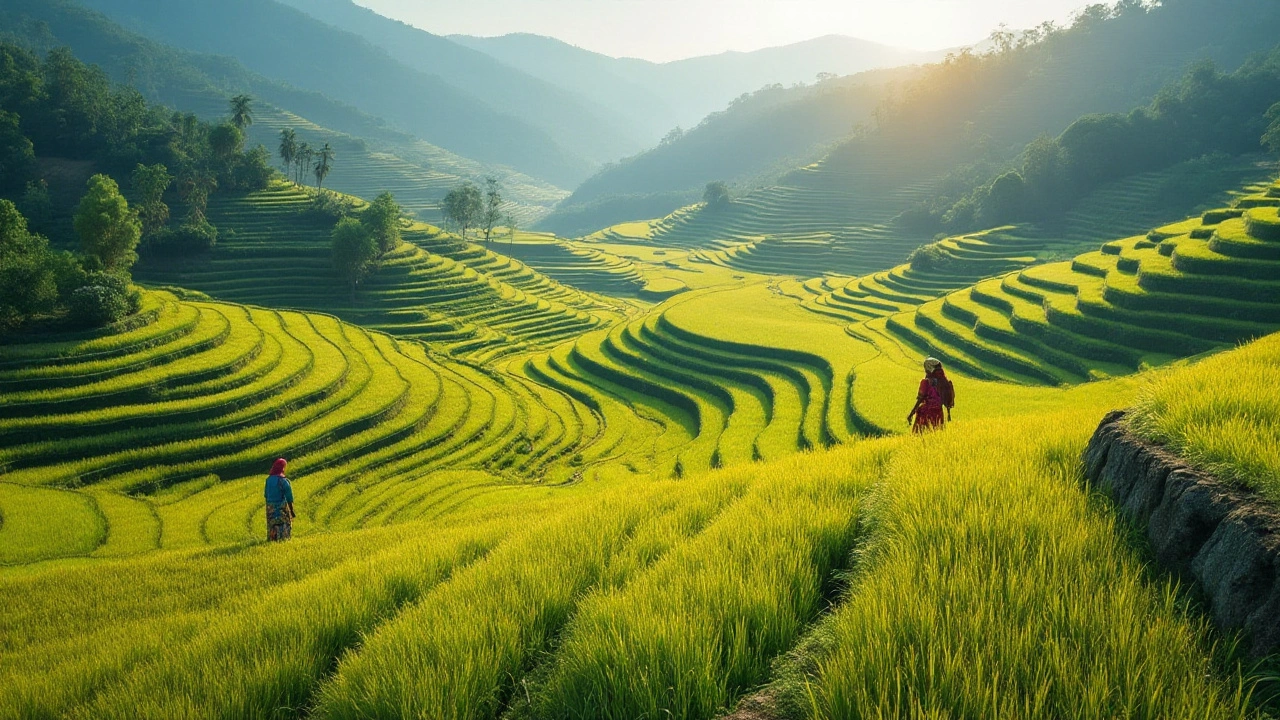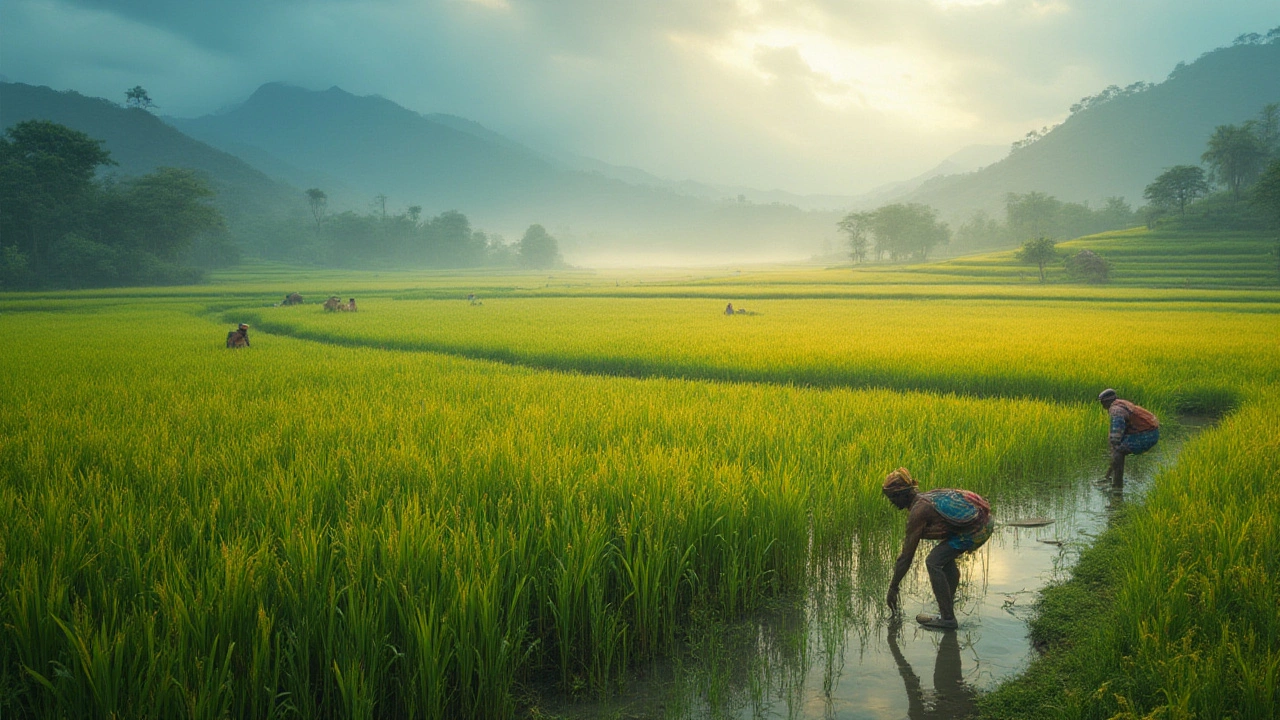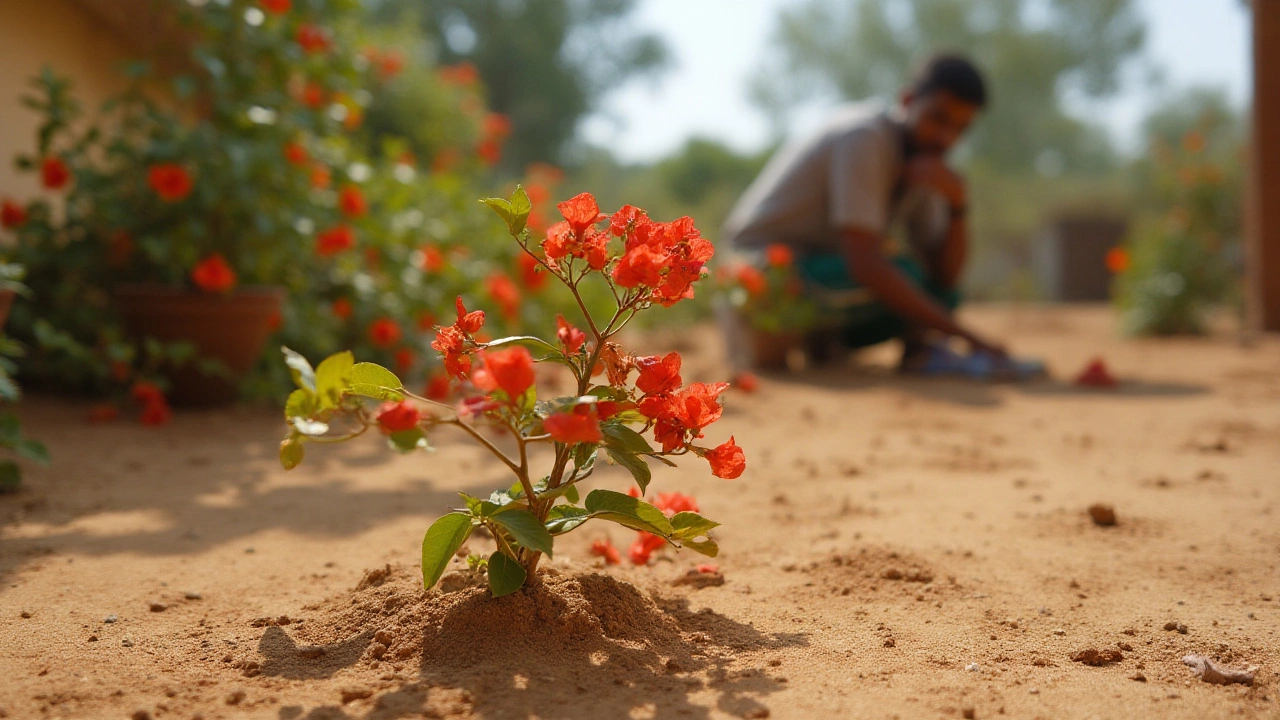Water Requirements for Healthy Gardens and Sustainable Farming
When planning Water Requirements, the amount of moisture plants need to grow well. Also known as irrigation needs, it directly ties to soil moisture, the water content held in the root zone and to drip irrigation, a low‑volume, targeted watering method. Even the quality of tap water, municipal water that may contain chlorine or hard minerals can shift how much water your plants truly need.
One common confusion is how often to water a container garden. Many think daily watering is a rule, but most pots retain enough moisture for several days. Check the top inch of soil – if it feels dry, it’s time to water. This simple test prevents over‑watering, saves water, and keeps roots from drowning. Adjust the schedule based on sun exposure, wind, and plant type, and you’ll see healthier growth without a wasteful splashing routine.
No‑till gardening is another game‑changer that influences water requirements. By leaving soil undisturbed, you preserve its natural structure, allowing water to infiltrate deeper and stay longer. The organic matter on the surface acts like a sponge, reducing evaporation and shielding roots from temperature swings. Pair this with mulching, and you create a micro‑climate that dramatically cuts the amount of water you need to apply each week.
Dry, compacted soil can sabotage even the best watering plan. Rehydrating garden soil is easiest with a slow‑release method: water in a deep soak early in the morning, let it soak for a few hours, then repeat if the ground stays firm. Adding compost or well‑rotted manure improves texture, helping water hold on to the soil particles and making it easier for roots to access the moisture they crave.
Mulch isn’t just for looks; it’s a practical water‑saving layer. Organic mulches like straw, leaf litter, or coconut coir trap moisture, keep weeds at bay, and slowly break down to feed the soil. When you combine mulch with a drip line, the water goes straight to the root zone while the mulch prevents it from evaporating too quickly. This duo is especially valuable in hot Indian summers where water loss can be rapid.
Crafting a water schedule means understanding both plant demand and environmental supply. Start by grouping plants with similar needs, then set a timer for your drip system or a reminder for manual watering. Seasonal adjustments are key: reduce frequency in monsoon months, and increase depth but not frequency during peak heat. Recording observations – like leaf wilting times or soil moisture readings – creates a feedback loop that fine‑tunes your plan over time.
Water‑saving techniques extend beyond timing. Rainwater harvesting, using greywater for non‑edible plants, and installing soil moisture sensors are low‑cost ways to match supply with demand. In many Indian regions, rooftop collection can provide a reliable buffer during dry spells, while a simple sensor alerts you the moment the soil drops below a set threshold.
All these ideas—container garden watering, no‑till methods, mulching, drip irrigation, tap‑water considerations, and smart scheduling—fit together to shape a clear picture of water requirements for anyone growing in Indian climates. Below you’ll find articles that dive deeper into each tactic, give you step‑by‑step guides, and share real‑world examples you can try right now.
Does Rice Require Abundant Water for Growth?
Rice is a staple food and a crucial agricultural product worldwide. Historically cultivated in water-rich environments, it has been synonymous with terraced paddy fields. However, not all rice requires flooding for optimal growth. With modern farming practices and water management techniques, farmers can adapt rice cultivation to different water availability levels.
- manufacturing
- India
- food processing
- garden tips
- rice cultivation
- government schemes
- balcony garden
- urban gardening
- balcony gardening
- profitable business
- business ideas
- plastic manufacturing
- drip irrigation
- plant care
- steel manufacturing
- sustainable gardening
- startup ideas
- steel industry
- flower gardening
- textile manufacturers






